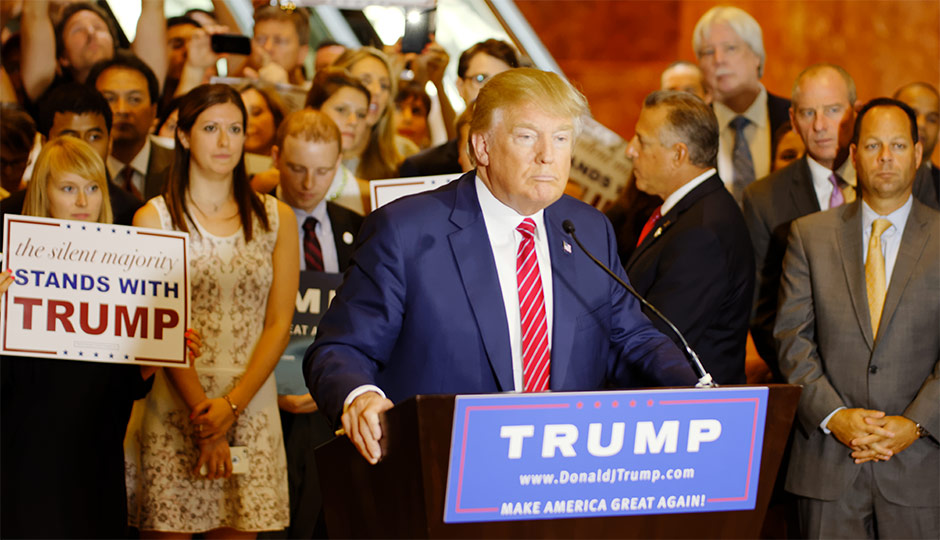Could Pennsylvania Hold the Key to Stopping Trump?

Photo by Michael Vadon, used under a Creative Commons license
Donald Trump looks likely to capture the Republican nomination. He generally leads the polls and is favored by betting markets. Republicans, though, could take the nomination away from him with a fight at the Republican National Convention in July.
That’s the report in a new story by Sasha Issenberg in Bloomberg Politics, which details the “the struggle to win a contested convention.” Trump appears to be the only candidate with a shot of collecting the 1,237 delegates (50 percent) needed for nomination at the RNC. But if he’s short of that target — even if he’s the leader, which he is now, with 44 percent of all pledged delegates so far — Republicans could block him from getting the nomination.
Here’s why: Republicans don’t just count up the states and decide the winner. Delegates — who are picked in various ways depending on state rules — vote at the RNC for a candidate to represent the party in the general election. Most delegates are only bound to a candidate for a certain number of rounds of voting. After one vote, 75 percent of delegates are unbound — that is, they can vote for whoever they want. Issenberg’s story details the maneuvers candidates are making to wrest the nomination from Trump on subsequent ballots.
As it so happens, Pennsylvania’s primary — which will be held on April 26th on both the Republican and Democratic sides — is part of the key to stopping Trump’s nomination. Pennsylvanians don’t just vote for candidates on April 26th. Each congressional district also votes for delegates to the state convention. Seventeen of the state’s delegates are bound to the winning candidate — Trump leads early polls — on the first ballot. But the other 54 are the delegates directly elected by congressional districts. In the most extreme scenario, Trump could win Pennsylvania but only get 17 delegates if voters elect delegates to the national convention who support other candidates.
That’s what happened in 1980, writes Issenberg.
By the time the 1980 primary season turned to Pennsylvania, Ronald Reagan’s advisers determined they had no way of matching George H.W. Bush’s spending in a vast state where television and radio time are expensive. “The Reagan team was running out of money at that point, and even if it had wanted to it couldn’t have competed,” says Charlie Gerow, who served as the campaign’s Pennsylvania delegate counter that year. Instead, Reagan tried to exploit the biggest loophole on the Republican primary calendar: a large haul of delegates who are selected through a process entirely distinct from the presidential contest. Bush ultimately won the popular vote handily in Pennsylvania, even though candidates loyal to Reagan seized 50 of the state’s then-77 delegate slots (Pennsylvania now has 71 GOP delegates).
The rules are slightly different now, but Pennsylvania’s Republican power brokers still hold a lot of sway in the process. If they can convince some of the state’s elected delegates to vote for a candidate other then Trump, they might be able to prevent his nomination. It’s more drama than an episode of The Apprentice.
Follow @dhm on Twitter.


